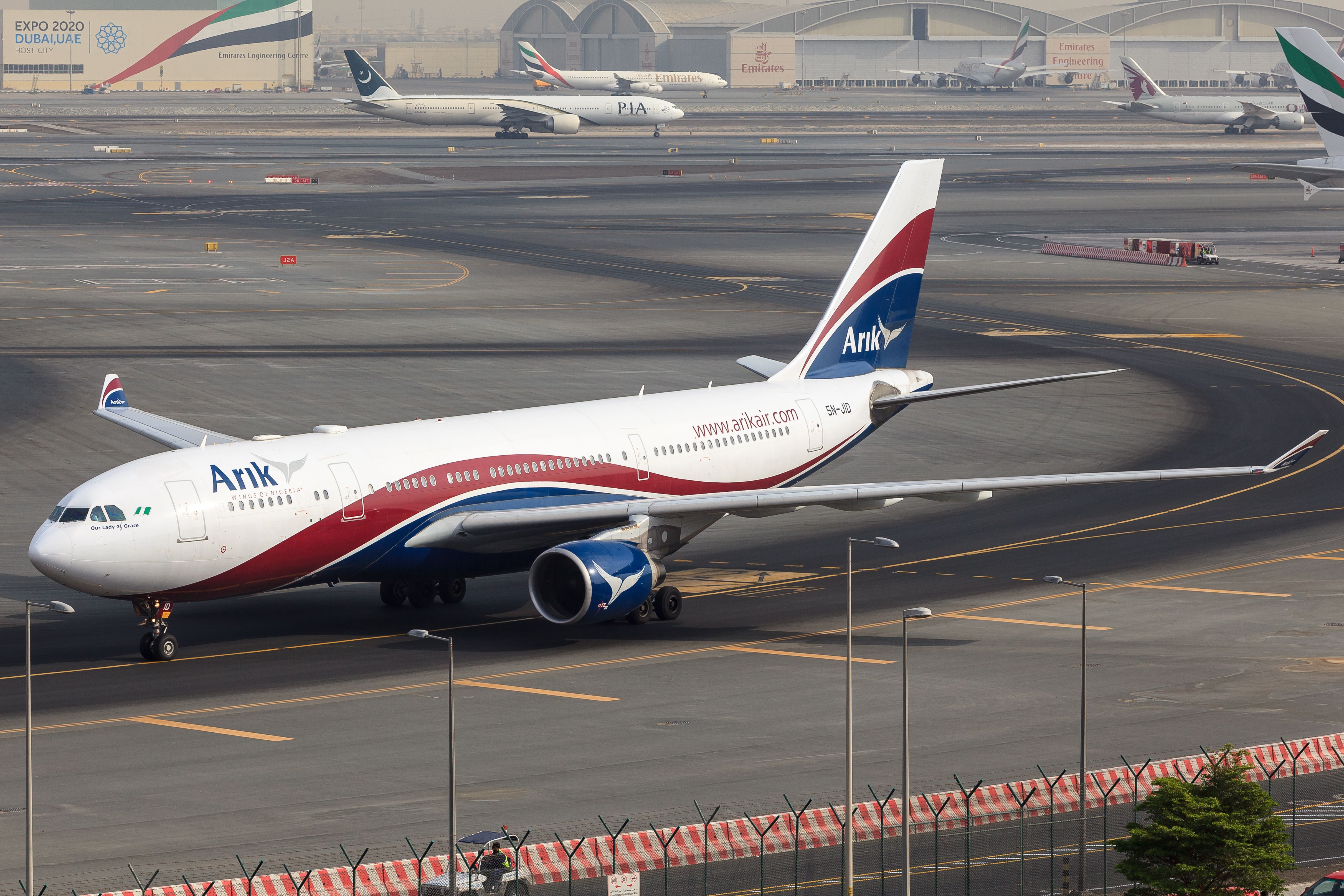Summary
- Nigerian carriers are facing a growing problem of being unable to pay for aircraft insurance and other required services due to a severe shortage of foreign exchange.
- The Central Bank of Nigeria's decision to float the naira and the decline in foreign imports and exports have exacerbated the problem, as airlines have limited access to US dollars at a favorable exchange rate.
- The Nigeria Civil Aviation Authority threatens to ground any uninsured aircraft and issue penalties against airlines and aviation service providers.
Amidst a consistently weakening local currency and a severe shortage of foreign exchange in Nigeria, paying for aircraft insurance coverage and other services has been an uphill battle for many Nigerian carriers. And on top of this problem, the Nigeria Civil Aviation Authority threatens to ground uninsured aircraft and will issue penalties against airlines and aviation service providers.
Insurance is a growing problem
Nigerian carriers typically sell their tickets in naira but are expected to pay for aircraft insurance premium payments, aircraft maintenance, and spare parts in US dollars. But a couple of months ago in June, the Central Bank of Nigeria floated the naira and directed commercial banks to only sell foreign exchange at market-determined rates, causing a significant shortage of foreign currency within the country as investors are unimpressed.
When coupled with how foreign imports and exports in Nigeria have steeply declined in recent years, the value of the naira could only spiral downward, and airlines have little to no access to the US dollar at a favorable exchange rate. And without much of the US dollar, the number of airlines being unable to pay for aircraft insurance and other required services continue to increase at an alarming rate.
This problem will likely continue to grow, at the unfortunate expense of Nigerian carriers unable to obtain the hard cash required, as the Chief Operating Officer of Ibom Air, George Uriesi, highlights:
"Insurance is a growing problem, and because we cannot fly an uninsured aircraft, we have no choice but to hang in there and source for the dollars to do the insurance. The losses we accumulated were mainly dollar-based components, when you are procuring dollars above the then CBN rate, you apply when it was N400 to a dollar and you get it at N680. The difference is massive.”
Get the latest aviation news straight to your inbox: Sign up for our newsletters today!
Sanctions will soon be deployed
As more aircraft fall under the uninsured category, the Nigeria Civil Aviation Authority issued a directive on August 11th addressed to all airlines and accompanying aviation service providers, signed by the Director General of Civil Aviation, Captain Musa Nuhu. According to the directive, any aircraft operated by any local airline without a valid insurance cover will be grounded.
The valid insurance cover required means the aircraft must be insured for not less than three months, and airlines and aviation service providers are to submit copies of valid insurance certificates, evidence of premium payments, and other policy-related documents to the authorities to avoid such groundings. It's unsure if the authorities will issue a similar directive for any inadequate aircraft maintenance, although given the same alarming trend, the likelihood is possible.
The directive also indicates that any airline and aviation service provider not complying with Part 18.14.11 of the Nigerian Civil Aviation Regulations - which came into effect on July 10th this year, will result in immediate sanctions. Captain Nuhu emphasizes the sanctions, in addition to the aircraft grounding, will include heavy penalties enforced on the defaulters, albeit the penalties were not precisely detailed.
Bottom line
While the grounds and sanctions are justified for aviation safety, the overall outlook for Nigerian carriers is not any better with this new threat. With the Nigerian aviation industry still struggling to regain momentum, the current obstacles could result in the collapse of some airlines as more grounded aircraft ultimately means fewer revenue flights operated.
We'd love to see you on Instagram - follow us here!
Source: ch-aviation



